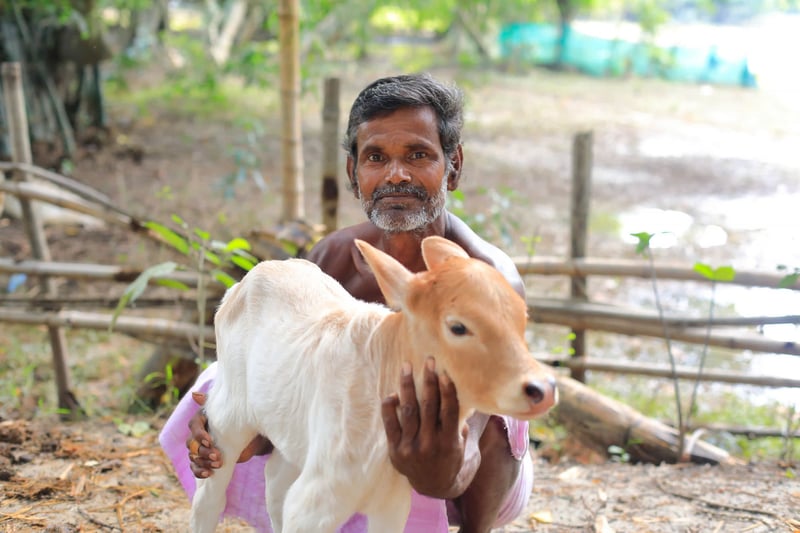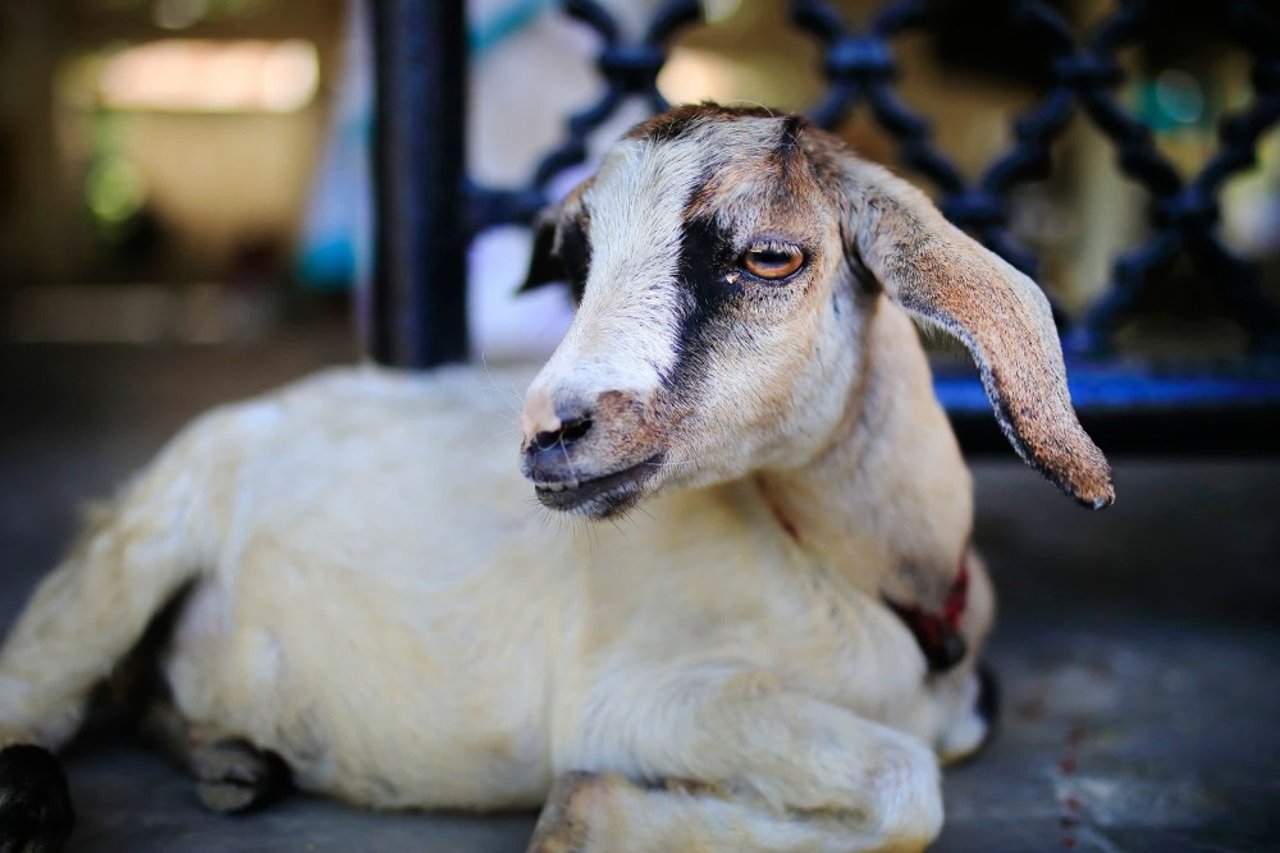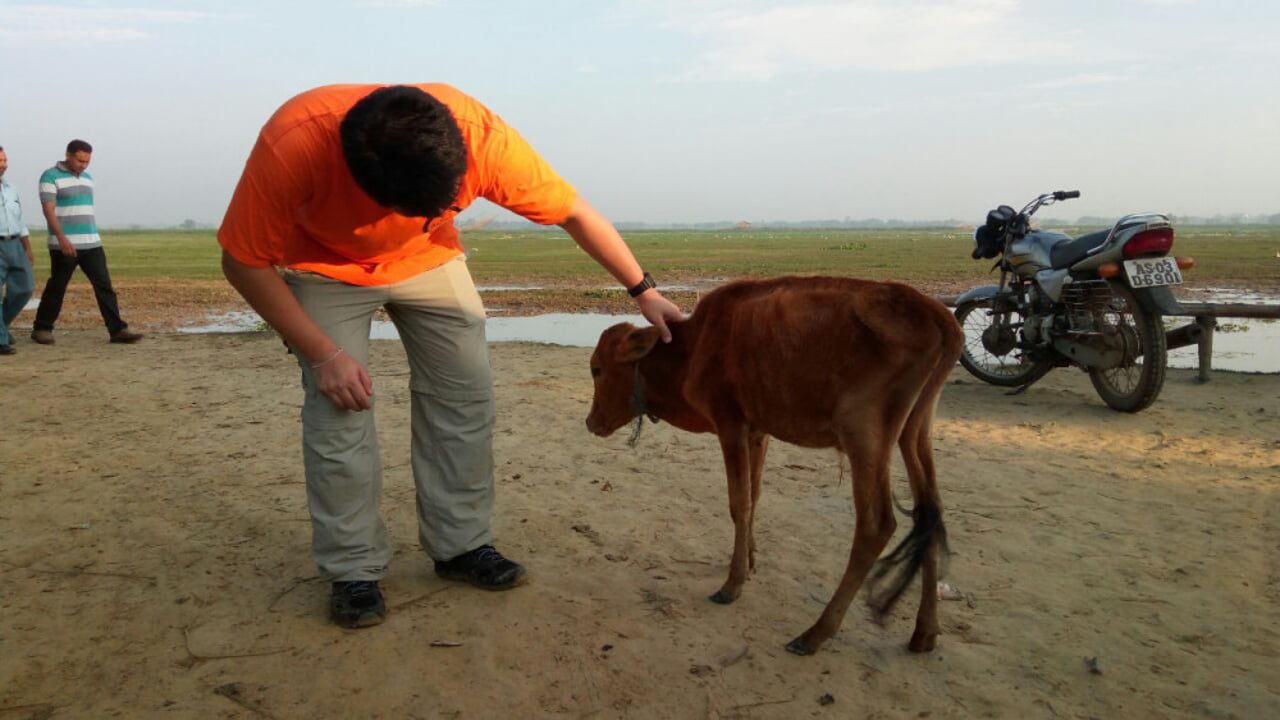
Can survival instincts of animals help in strengthening the existing early warning systems and achieving “Zero Casualty” from disasters?
Blog
Animals are amazing. They hear things we can't hear, smell things we can't smell, and sense things that we cannot.
Animals are amazing and we're not just talking about how adorable they look or act. Rather, we're referring to how attuned they are to what's always happening around them, their surroundings, the environment, and with our earth. Often, they pick up on things we aren't even aware of. They hear things we can't hear, smell things we can't smell, and sense things that we cannot. So, the big question is “Can survival instincts of animals help in strengthening the early warning systems and in achieving zero casualties from disasters?
Animals can sense natural disasters
Scientists haven't pinned down a concrete explanation as to why they're able to sense natural disasters before we can, but there is plenty of evidence that clearly proves that something is telling them that they need to move to a safer place at a very specific time. Some scientists think that these animals can feel the P (primary) waves that the shift in tectonic plates sends out before the S (seismic) waves that do the actual "quaking" happen. These P waves are not noticeable to humans. Other scientists think there might be chemicals released so that the animals can sense, or a shift in the atmosphere. It's really a mystery. While the verdict's still out on why this happens, there's no denying our observant animals and their cool capabilities.
Throughout history and into the 21st century, you would have heard about animals behaving weirdly before a natural calamity strikes. Among domestic animals, reports of hens not laying eggs, cows not giving milk, or bees abandoning hives days, hours and even minutes before tornadoes, hurricanes, earthquakes and more recently tsunamis are spotted. Animals have senses that are more developed than humans - not only hearing, but other senses such as sensing changes in atmospheric pressure and moisture.
Animals as Early Warning Systems
In the absence of any early flood warning system, villagers in Assam are banking on abnormal animal behaviour to predict and survive sudden inundation of their houses. When insects like locust, grasshopper etc come out from their hideouts and fly randomly and enter houses, the situation suggests a sudden change in the weather condition, more occasionally flood with heavy rain. Similarly, when ants shift their shelter to higher places with their eggs and foodstuff, it indicates a definite forthcoming flood. When a fox howls irritably at a higher place it indicates a forthcoming prolonged drier season but when it howls from a low-lying location it indicates a probability of high flood. The cry of doves and two species of birds are also warning signs. Toads and frogs make continuous sounds before torrential rain and devastating flood. Indigenous technical knowledge has been the key rescuer of fishermen and common people of Dhemaji district of Assam from frequent floods in the region every year[1].
Chinese government researchers are using chickens, fish, and toads to try to predict earthquakes. The seismological bureau in the eastern city of Nanjing has transformed seven animal farms into seismic stations. Breeders on the farms are asked to update the bureau about the behaviour of the animals twice a day. Possible abnormal behaviour which could indicate imminent earthquakes includes chickens flying atop trees, fish leaping out of water or toads moving in a group. Nanjing plans to recruit more farms into the scheme. Facilities need to house more than three species to be eligible.[2]
Animals can anticipate natural disasters
In 2017 scientific researcher in Germany who is working on the theory “Animals can anticipate natural disasters”. Dr. Martin Wikelski has been tagging animals on the Angeli farm in Pieve Torina region of Italy where there were several earthquakes and closely monitoring parameters such as Temperature, Heart rate, Speed, Altitude, Out of boundary along with the animal’s medical details.[3] Similar to this there are many types of research and studies being carried out in many countries to scientifically document and report the different animal behaviors which could be helpful for saving lives from disasters.
What is Animal Tracker?
Scientists at International Cooperation for Animal Research Using Space (ICARUS) are working to develop a satellite-based system to observe small animals such as birds, bats, and turtles. This will help to know more about the life of animals on earth: the migratory routes they take and their living conditions. This will aid behavioural research, species protection and research into the paths taken in the spread of infectious diseases and even help to predict ecological changes and natural disasters. There is also a free app called “Animal Tracker” which can be installed on smartphones and enable anyone to document their own animal observations and make them accessible to the scientific community[4].
Three Dehradun-based institutions have submitted a joint proposal to the National Disaster Management Authority (NDMA) regarding the scientific study needed to ascertain whether the observation of animals can be helpful in predicting disasters. Talking to The Pioneer, the Wildlife Institute of India (WII) director Dr. VB Mathur said that the prime minister’s office had asked the NDMA for details on the possibility of using animals to predict disasters. Apart from the WII, the Wadia Institute of Himalayan Geology (WIHG) and Indian Institute of Remote Sensing (IIRS) are also involved in the proposal submitted to the NDMA[5].
Observing and studying animals and the erratic changes in their behaviour can help to predict natural disasters as Early Warning Systems to the local communities. Accordingly, key disaster preparedness actions can be taken to safely evacuate population from the disaster-prone areas, thus supporting in saving precious lives. Therefore, if you come across any such observations, please share the information along with your experience to us and #DontForgetThem.
[1] https://www.ndtv.com/india-news/animal-behaviour-guides-assam-villagers…
[2] https://www.businessinsider.com/afp-china-using-animals-to-predict-eart…
[3] https://open.sap.com/files/d1e310ee-ac81-49af-a18c-6c9d0abfe200
[4] https://www.icarus.mpg.de/28810/animals-warning-sensors
[5] https://www.dailypioneer.com/2015/state-editions/proposal-to-study-anim…

